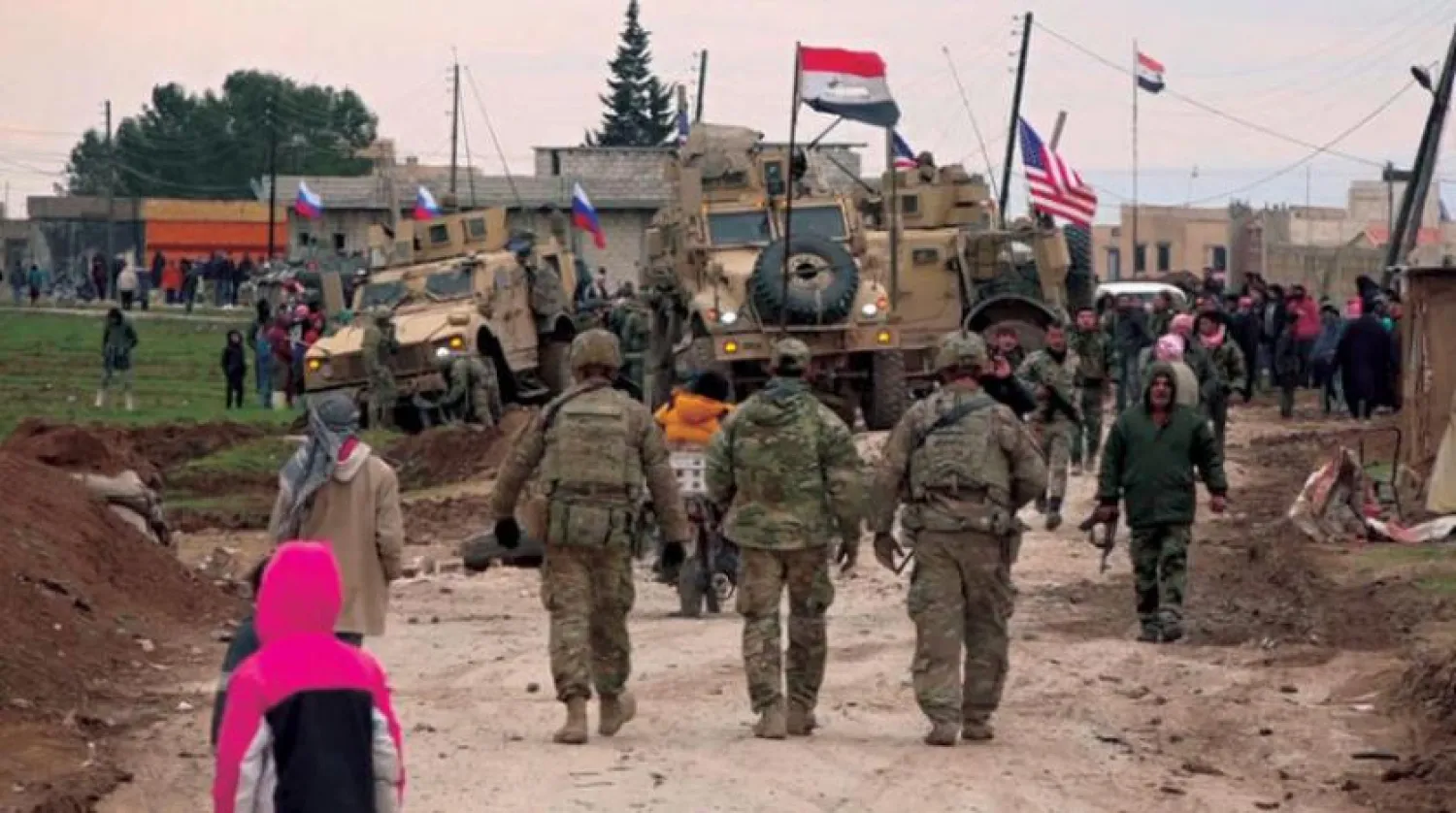Five years after the Russian military intervention in the war in Syria, which has an area of 185,000 square kilometers, the country remains divided into three zones of influence, with demarcation lines remaining relatively unchanged in the past six months.
The first zone - around two thirds of territories in the country - falls under the control of government forces backed by Iran and Russia. In the second, a quarter of the territories in northeastern Syria are controlled by the Kurdish Syrian Democratic Forces that are supported by the US-led coalition.
The third zone of control that lies in northern and northwestern Syria is run by factions backed by the Turkish military.
“Jusoor for Studies” said that Russian officials have repeatedly announced that prior to Moscow’s intervention in Syria’s war in September 2015, regime forces were in control of only 10 percent of the country’s territories. With Russia’s help, the government is now in control of around two-thirds of the country.
According to a study carried out by the institution, the spheres of influence of the different powers have remained relatively stable since February. Opposition factions kept their control on 10.98 percent of territories, the regime on 63.38 percent while the remaining 25.64 percent stayed under the control of the SDF.
“ISIS has no military control of Syrian territories since February 2019,” it said. But the militant group has kept cells east of the Euphrates and the Syrian desert, known as the Badia.
The study said that demarcation lines have remained relatively unchanged due to agreements struck by the countries of influence, the coronavirus pandemic, and Syria’s economic crisis including the repercussions of Washington’s sanctions on it.
Among such deals is the understanding reached between the US and Russian militaries in mid-2017 on de-confliction by exchanging information on the flights of their fighter jets and considering the Euphrates a line separating the Americans and their allies from Russia and the factions it supports.
The deal included some exceptions, such as the US keeping the outpost of Tanf, near the border with Iraq and Jordan, south of the Euphrates, and in Manbij west of it.
The Syrian government also kept its presence in areas in Qamishli and Hassakeh east of the Euphrates.
The situation remained relatively stable until October 2019 when US President Donald Trump withdrew his forces from areas near the Turkish border, which encouraged his Turkish counterpart, Recep Tayyip Erdogan, to make a military incursion along with its Syrian allies between Tal Abyad and Ras al-Ain.
The SDF also signed an agreement with Damascus for cooperation with the Syrian and Russian armies to deploy around 10,000 troops in areas where US troops had withdrawn from.
The deal included carrying out Russian-Turkish patrols on the main roads between Aleppo and Qamishli.
In reversal, Trump agreed to leave about 500 US troops east of the Euphrates and around 100 in al-Tanf, which turned northeastern Syria into a complicated battleground with different forces operating there.
This led to Russian-US negotiations to confirm that the de-confliction agreement was still in force.
But the Russian military has upped its presence and tried more than once to obstruct US patrols.
In June, US Marine General Kenneth McKenzie, the head of US Central Command, said international coalition forces have discovered an increase in Russian military equipment in the region, which complicates the US role in the area.
By the end of June, Russian forces began entering areas where coalition troops have a presence as part of a plan to “expel” them from the region.
National Security Adviser Robert O’Brien said on Friday that the US has conveyed its concerns to Russia over an incident in Syria in which several US troops were injured when a Russian military vehicle collided with theirs.
“It’s been communicated to them (Russia) very clearly,” O’Brien told a White House news conference. “It’s been communicated at the appropriate level.”
Another agreement on Syria is that of Turkey and Russia in the country’s Idlib region.
Russia’s Defense Minister Sergei Shoigu visited Damascus in March to confirm commitment to the agreement with Turkey on Idlib and to avoid battles amid the coronavirus pandemic.
Along with the spread of the disease, Syria’s economic crisis has deepened and the currency has depreciated as the US hit Syria with its toughest sanctions yet under the Caesar Syria Civilian Protection Act to choke off revenue for the regime in a bid to force it back to United Nations-led negotiations and broker an end to the country’s war.
Ways to deal with the sanctions, the implementation of Security Council Resolution 2254 and the fate of the demarcation lines in northwestern and northeastern Syria will be likely discussed during the visit of a Russian military, political and economic delegation to Damascus on Sunday.
















